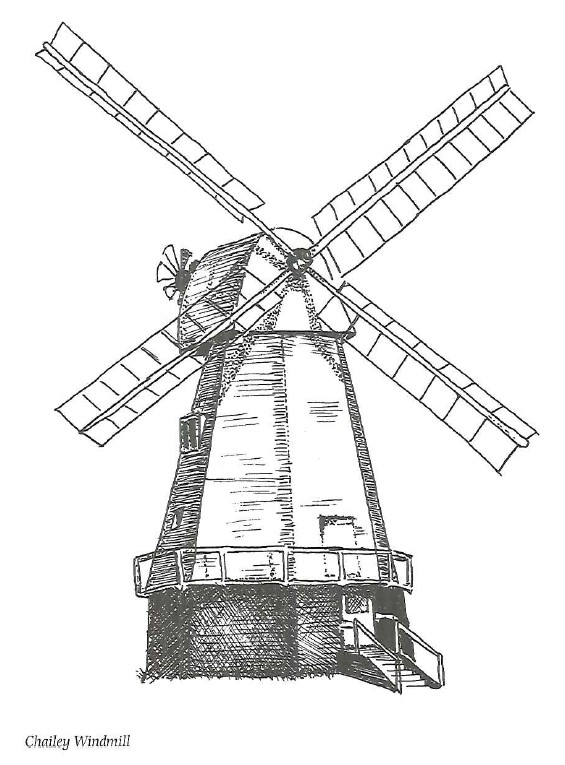Not a good place to have been a simple foundry worker at the height of the iron industry … you might have found yourself on a forerunner of the treadmill. They made guns here and depended on water power to keep the bellows of the furnace going, so in dry winters when water was in short supply men had to literally ‘tread the wheel’, stepping from bucket to bucket to maintain blast and production.
Not a good place, either, to have held anti-Puritan sympathies 300 years ago. The Rev Thomas Sharpe and his wife lived at Church House and were so seriously assaulted by Cromwellian soldiers that Mrs Sharpe later died of her injuries.
Legend says that one of the murderers of Thomas a Becket, Sir Reginald Fitz-Urse, galloped from Canterbury to Beckley to seek sanctuary in the church, his right hand still covered in the blood of the Archbishop. In his desperation the knight overlooked the fact that treason and sacrilege had put him beyond the pale. The drumming hooves of his ghostly horse are believed to haunt the village on dark nights.
Beckley, left in King Alfred’s will to his kinsman Osferthe, has one of the longest village streets in the county, which is a gem for the enthusiast of architecture.
As well as guns, glass was made here in the past, formed into practical things like vessels, jars and bowls, and surely not serving any cosmetic purpose – it must be pure coincidence that there is a Glass Eye Farm in the parish!
Older residents still remember Mr Ripley who used to deliver fruit and vegetables in Beckley and the surrounding villages during the 1930s, a time when most food was delivered to the door. He had nine children and usually brought some of them with him to help him on his rounds. They would run ahead and announce his imminent arrival. Everything was carried on a handcart and when his wares were exhausted the children climbed aboard and Mr Ripley pushed them home.
